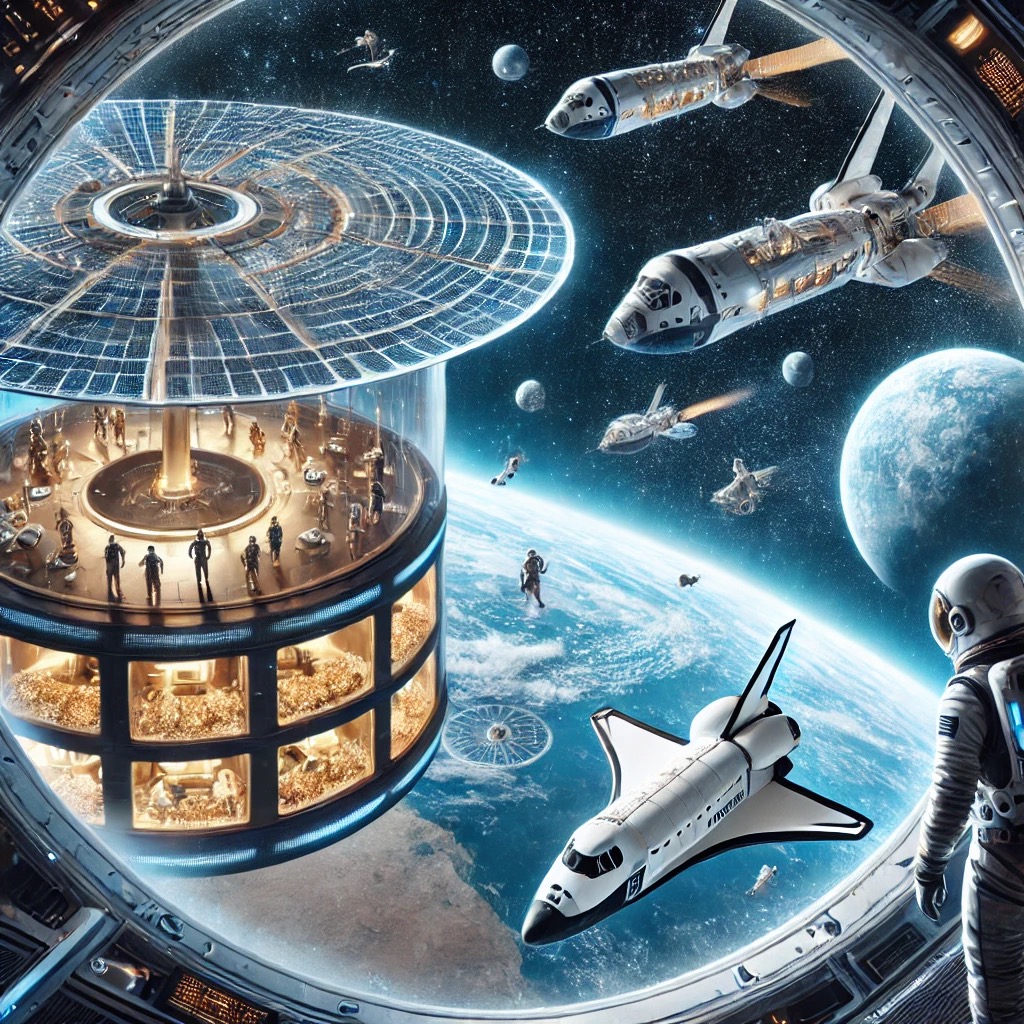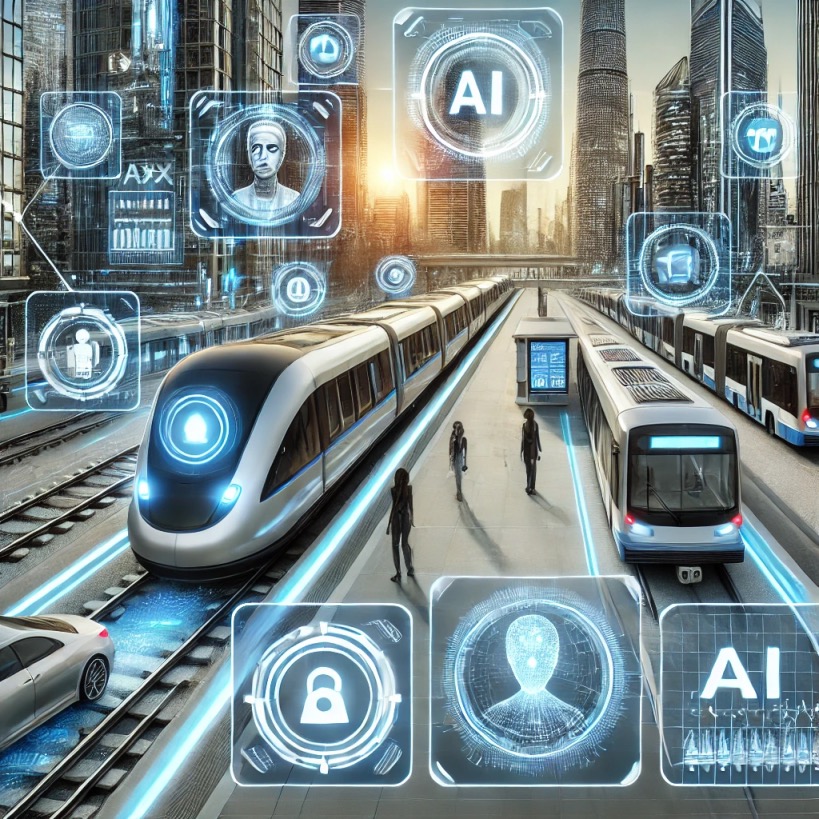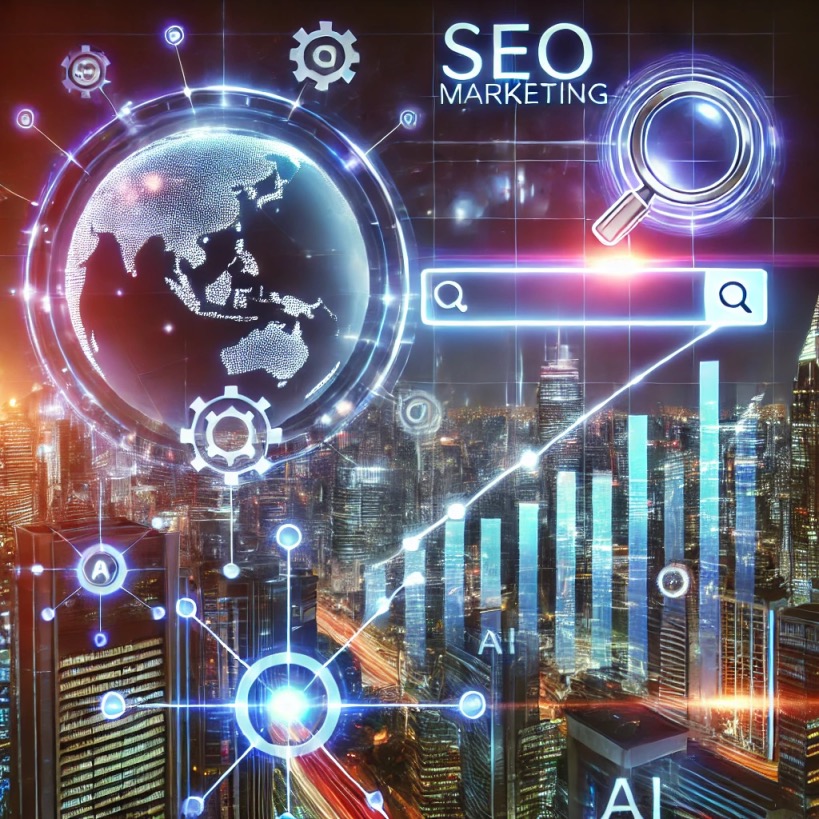The future of entertainment is rapidly evolving, and one of the most exciting developments is the rise of AI-generated movies and TV shows . Really?
As artificial intelligence continues to advance, it is reshaping how content is created, produced, distributed, and consumed. From scriptwriting to post-production, AI is already making its mark on the entertainment industry, and its potential to revolutionize storytelling is immense.
Here’s a deep dive into what the future of AI-generated entertainment might look like:

1. AI in Scriptwriting and Story Development
AI tools are increasingly being used to assist in the creative process of writing scripts and developing storylines. These tools can analyze vast amounts of data, including successful movies, TV shows, and books, to identify patterns in storytelling, character arcs, and dialogue styles.
- How It Works : AI algorithms can generate plot outlines, suggest dialogue, or even create entire scripts based on specific genres, themes, or audience preferences. For example, OpenAI’s GPT models have been used to generate short stories and screenplays.
- Potential Benefits :
- Faster ideation: Writers can use AI to brainstorm ideas or overcome writer’s block.
- Audience targeting: AI can analyze trends and predict what types of stories will resonate with specific demographics.
- Cost efficiency: Independent creators may leverage AI to produce high-quality scripts without needing large teams.
- Challenges :
- Lack of originality: AI-generated content may lack the emotional depth or nuance that human writers bring.
- Ethical concerns: Who owns the rights to AI-generated scripts? Can an AI truly “create” art?
2. AI-Generated Visuals and Animation

AI is transforming visual production by enabling filmmakers to create stunning visuals, realistic animations, and immersive environments more efficiently than ever before.
- Deepfake Technology : Deepfakes allow for hyper-realistic digital recreations of actors, which could be used to de-age performers, resurrect deceased actors, or even cast entirely virtual characters.
- Generative Adversarial Networks (GANs) : GANs can generate photorealistic images and videos, allowing creators to design complex scenes or worlds without extensive manual labor.
- Virtual Production : Tools like Unreal Engine (used in The Mandalorian ) combine AI with real-time rendering to create dynamic sets and environments, reducing the need for physical locations.
- Examples :
- In 2023, some short films were created entirely using AI-generated visuals, demonstrating the technology’s potential.
- Netflix has experimented with AI-driven personalization in trailers, creating unique versions tailored to individual viewers.
3. Personalized Content Creation
One of the most exciting possibilities of AI in entertainment is its ability to deliver personalized experiences to audiences.
- Dynamic Storytelling : Imagine watching a movie where the plot changes based on your preferences or choices. AI could enable interactive narratives where viewers influence the outcome, similar to video games like Black Mirror: Bandersnatch .
- Customized Recommendations : Streaming platforms like Netflix and Amazon Prime already use AI to recommend content. In the future, AI could go further by generating custom episodes or spin-offs based on user behavior.
- Localized Content : AI can adapt movies and TV shows for different regions by translating languages, modifying cultural references, or altering visual elements to suit local tastes.
4. AI in Post-Production
Post-production processes such as editing, sound design, and visual effects are becoming faster and more efficient thanks to AI.
- Automated Editing : AI can analyze footage and automatically assemble rough cuts based on predefined criteria, saving time for editors.
- Sound Design : AI tools can generate background scores, Foley effects, or even mimic famous composers’ styles.
- Visual Effects (VFX) : AI accelerates tasks like rotoscoping, motion tracking, and CGI rendering, making high-quality VFX accessible to smaller studios.
5. AI-Powered Distribution and Marketing
AI is also changing how movies and TV shows are marketed and distributed.
- Predictive Analytics : Studios use AI to predict box office performance, optimize release dates, and identify target audiences.
- Social Media Campaigns : AI analyzes social media trends to craft viral marketing strategies and engage fans effectively.
- Streaming Optimization : Platforms like YouTube and TikTok use AI to curate content and keep users engaged, while AI chatbots handle customer service inquiries.
6. Ethical and Creative Challenges
While AI offers incredible opportunities, it also raises important questions about creativity, ethics, and the role of humans in storytelling.
- Creative Control : Will AI replace human creators, or will it serve as a tool to enhance their work? Striking the right balance between automation and human input will be crucial.
- Bias and Representation : AI systems trained on biased datasets may perpetuate stereotypes or exclude diverse voices.
- Job Displacement : Automation could reduce the demand for certain roles in the industry, such as editors or animators.
- Intellectual Property : Determining ownership of AI-generated content poses legal challenges. Should credit go to the programmer, the AI, or the person who fine-tuned the output?
7. The Rise of Fully AI-Created Movies and Shows
As AI capabilities improve, we may see fully AI-created movies and TV shows—projects where every aspect, from script to visuals, is generated by machines.
- Short Films : Already, AI has been used to create experimental short films. For instance, the 2016 film Sunspring featured a script written entirely by an AI named Benjamin.
- Mainstream Adoption : While mainstream adoption of fully AI-generated content is still years away, early experiments suggest that AI could eventually produce feature-length films or series.
- Hybrid Models : More likely in the near term is a hybrid approach, where AI assists human creators at various stages of production.
8. Immersive Experiences with AI and VR/AR
AI is set to play a key role in enhancing immersive entertainment experiences through virtual reality (VR) and augmented reality (AR).
- Interactive Worlds : AI can power dynamic, responsive worlds in VR/AR environments, allowing users to interact with characters and settings in real-time.
- Personal Avatars : Users could create lifelike avatars powered by AI to represent themselves in virtual spaces.
- Live Events : AI could enable live concerts, theater performances, or sports events to be streamed in VR with customizable viewpoints.
9. Audience Engagement Beyond Passive Viewing
The traditional model of passive viewing is giving way to more interactive and participatory forms of entertainment.
- AI Chatbots : Virtual assistants could act as companions during movies or shows, providing trivia, answering questions, or offering behind-the-scenes insights.
- Gamified Experiences : AI could blend gaming and streaming, allowing viewers to solve puzzles, make decisions, or unlock bonus content within a narrative.
- Community Building : AI-powered platforms could connect fans around shared interests, fostering deeper engagement with franchises and fandoms.
10. What Lies Ahead?
The future of AI-generated entertainment holds limitless possibilities. Here are a few predictions:
- Democratization of Content Creation : AI tools will empower independent creators to produce professional-quality content without massive budgets.
- Global Collaboration : Filmmakers worldwide will collaborate seamlessly using AI-powered translation and localization tools.
- New Genres and Formats : AI may inspire entirely new genres or formats that blend traditional storytelling with emerging technologies.
- Human-AI Partnerships : Rather than replacing humans, AI will likely become a trusted partner, amplifying creativity and pushing boundaries.
Final Thoughts
AI-generated movies and TV shows represent a bold new frontier in entertainment. While the technology is still in its infancy, its potential to transform storytelling, production workflows, and audience engagement is undeniable. However, as with any technological advancement, ethical considerations must guide its development to ensure that AI enhances rather than diminishes the magic of human creativity.


